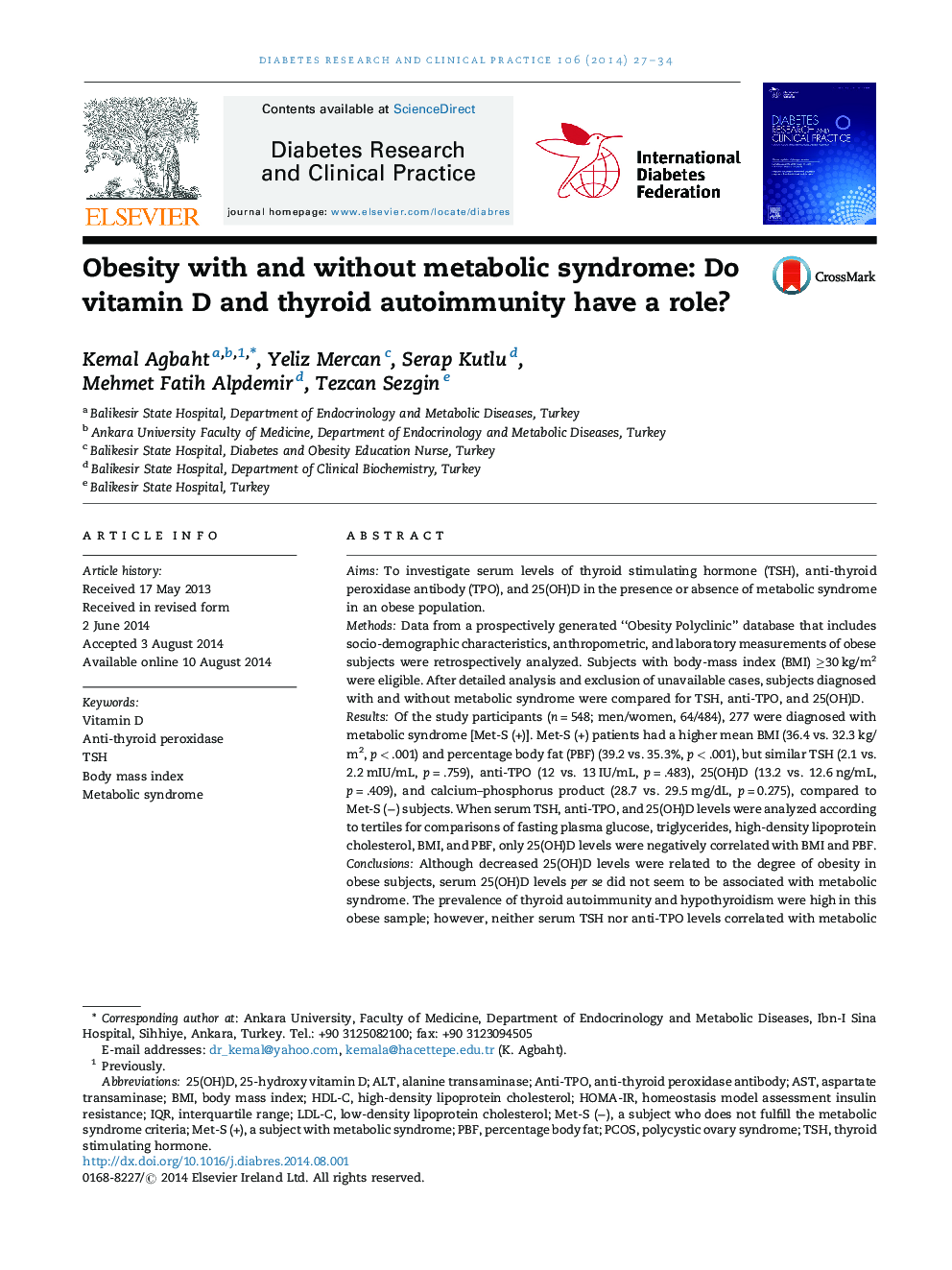| کد مقاله | کد نشریه | سال انتشار | مقاله انگلیسی | نسخه تمام متن |
|---|---|---|---|---|
| 2796626 | 1155609 | 2014 | 8 صفحه PDF | دانلود رایگان |

AimsTo investigate serum levels of thyroid stimulating hormone (TSH), anti-thyroid peroxidase antibody (TPO), and 25(OH)D in the presence or absence of metabolic syndrome in an obese population.MethodsData from a prospectively generated “Obesity Polyclinic” database that includes socio-demographic characteristics, anthropometric, and laboratory measurements of obese subjects were retrospectively analyzed. Subjects with body-mass index (BMI) ≥30 kg/m2 were eligible. After detailed analysis and exclusion of unavailable cases, subjects diagnosed with and without metabolic syndrome were compared for TSH, anti-TPO, and 25(OH)D.ResultsOf the study participants (n = 548; men/women, 64/484), 277 were diagnosed with metabolic syndrome [Met-S (+)]. Met-S (+) patients had a higher mean BMI (36.4 vs. 32.3 kg/m2, p < .001) and percentage body fat (PBF) (39.2 vs. 35.3%, p < .001), but similar TSH (2.1 vs. 2.2 mIU/mL, p = .759), anti-TPO (12 vs. 13 IU/mL, p = .483), 25(OH)D (13.2 vs. 12.6 ng/mL, p = .409), and calcium–phosphorus product (28.7 vs. 29.5 mg/dL, p = 0.275), compared to Met-S (−) subjects. When serum TSH, anti-TPO, and 25(OH)D levels were analyzed according to tertiles for comparisons of fasting plasma glucose, triglycerides, high-density lipoprotein cholesterol, BMI, and PBF, only 25(OH)D levels were negatively correlated with BMI and PBF.ConclusionsAlthough decreased 25(OH)D levels were related to the degree of obesity in obese subjects, serum 25(OH)D levels per se did not seem to be associated with metabolic syndrome. The prevalence of thyroid autoimmunity and hypothyroidism were high in this obese sample; however, neither serum TSH nor anti-TPO levels correlated with metabolic syndrome. Our findings did not support the hypothesis that thyroid autoimmunity and/or vitamin D status have a role in the development of metabolic disturbances in the obese population.
Journal: Diabetes Research and Clinical Practice - Volume 106, Issue 1, October 2014, Pages 27–34